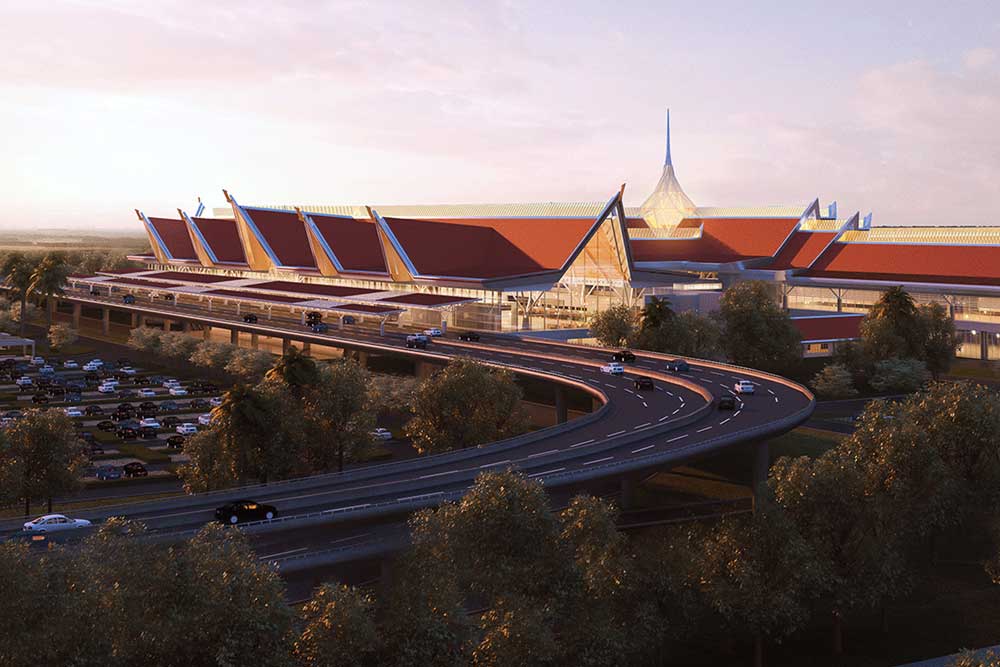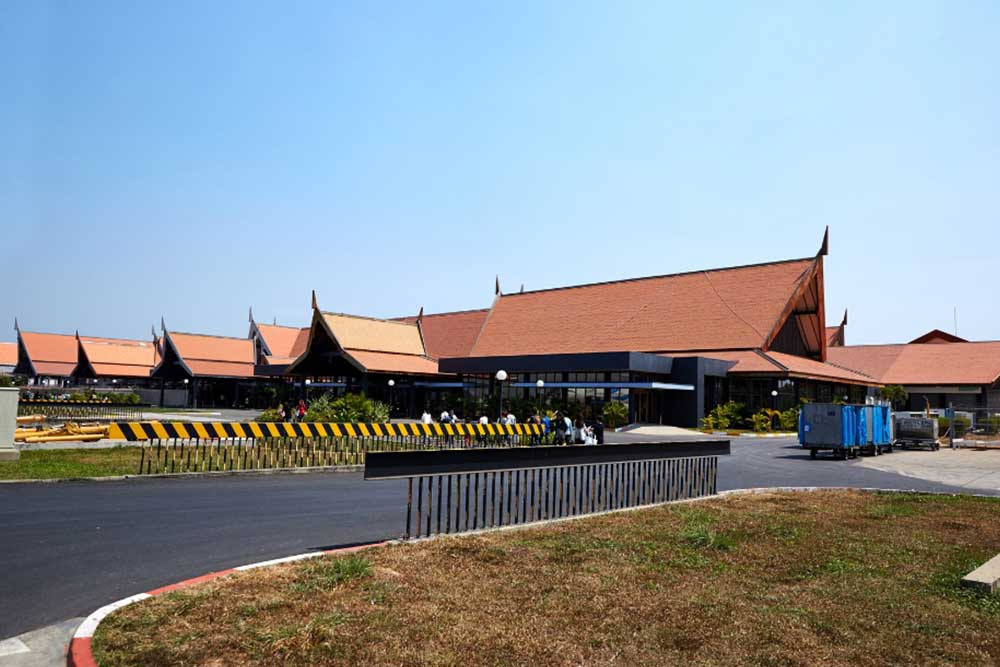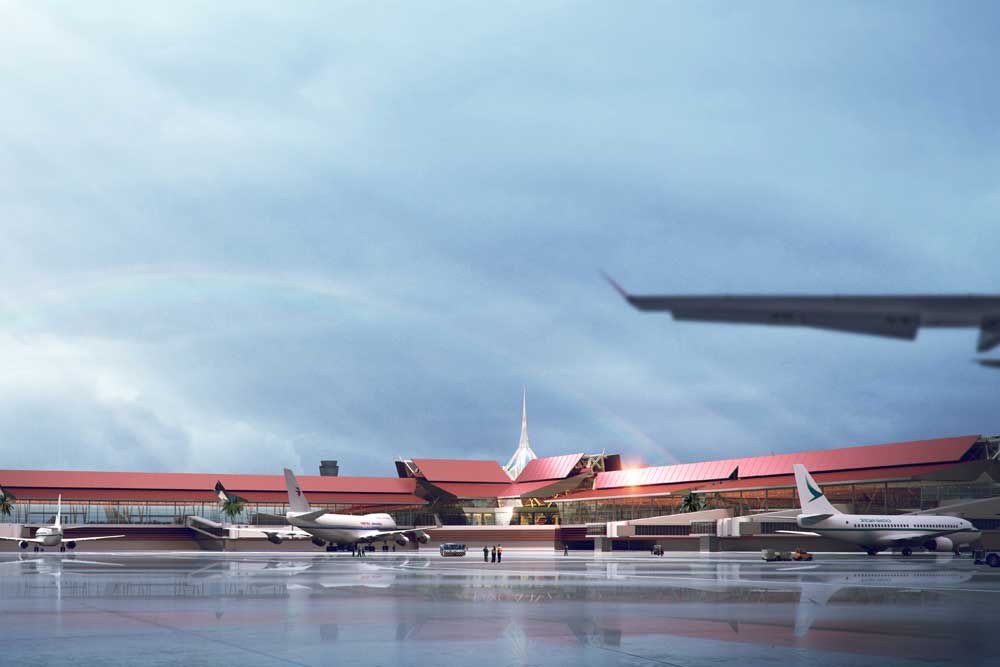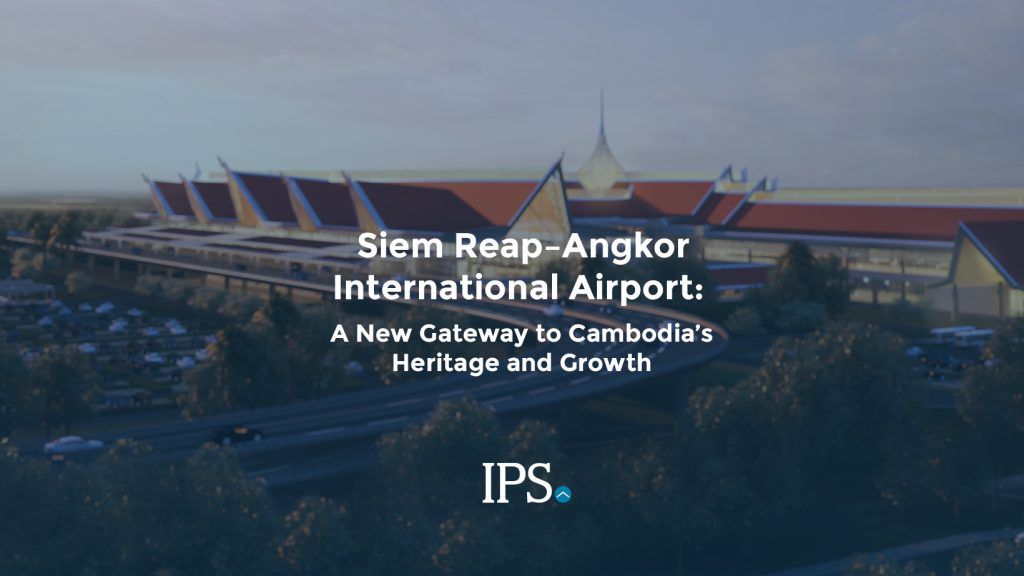UPDATED 12 AUGUST 2025 | On 16 October 2023, Siem Reap welcomed the opening of the Siem Reap–Angkor International Airport (SAI). This new airport has replaced the old Siem Reap airport and is now the main entry point for visitors heading to Angkor Wat and the city. Alongside the upcoming Techo International Airport in Phnom Penh, Cambodia is making historic investments in modern aviation infrastructure. For Cambodia, this move is a sign of the country’s growing capacity, modern infrastructure, and long-term investment in tourism.

Built to Support Heritage and Tourism
The new airport is located about 40 kilometers east of Siem Reap and covers 700 hectares. The move was important to protect the temples of Angkor, a UNESCO World Heritage Site, from aircraft vibration and overcrowding.
With a 3,605-meter runway and modern terminal, the airport can now receive larger aircraft, including long-haul international flights. This means travelers from farther destinations can fly directly into Siem Reap, making the city more accessible than ever.
Capacity for the Future
In its first stage, the airport can serve 7 million passengers a year. This will grow to 12 million by 2040, with future plans allowing up to 20 million passengers annually.
These numbers matter. Before the pandemic, Angkor Wat attracted millions of international visitors each year, with tourism as the main driver of Siem Reap’s economy. The new airport ensures that as tourism rebounds, Siem Reap is ready to welcome more visitors and provide a better travel experience.

Why This Matters for Siem Reap’s Progress
As Cambodia continues to expand its transport network, from new expressways to airports, these projects are proving to be key drivers of property growth and long-term investment confidence.
- Tourism recovery: Easier access from long-haul destinations brings more visitors, which benefits hotels, restaurants, and local businesses.
- Real estate growth: With higher visitor numbers and better connectivity, the demand for homes, rentals, and commercial spaces in Siem Reap is set to rise.
- Wider economy: A modern airport creates opportunities beyond tourism, from logistics and trade to new jobs for the community.

Facts at a Glace
| Feature | Detail |
| Opening Date | 16 October 2023 |
| Location | ~40 km east of Siem Reap / Angkor Wat |
| Area | ~700 hectares |
| Airport Class | ICAO class 4E |
| Runway | 3,605 meters (concrete) |
| Phase 1 Capacity | 7 million passengers/year |
| Future Capacity | 12 million by 2040, up to 20 million |
| Investment | US $1.1 billion (55-year BOT) |
| Operator | Yunnan Investment Group (YIAC) |
| Transition | Old Siem Reap airport closed 15 Oct 2023 |
Building the Next Chapter for Siem Reap
The new airport means the first experience for visitors is modern, spacious, and welcoming. It also sends a message that Siem Reap is preparing for the future, not only by protecting its past but also by investing in its growth.
For real estate and business, this is a sign of confidence. A stronger tourism industry means a stronger city, with more opportunities for those who live, work, and invest here.

